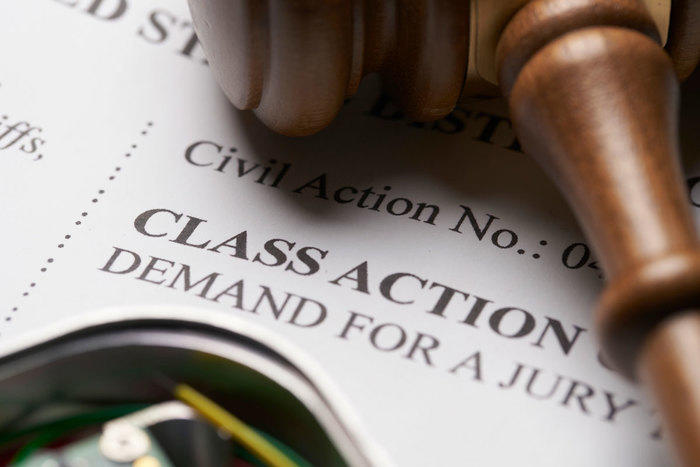Key Factors to Think About in Class Action Claims: Insights for Legal Representatives
Course action suits can be tough and complicated for attorneys to navigate. Recognizing these aspects and their implications is essential for lawyers intending to efficiently represent their clients in course action legal actions.
Course Certification Needs
To wage a class activity suit, lawyers need to browse through a collection of rigid class qualification requirements. Course accreditation is an essential phase in the litigation procedure that identifies whether a team of plaintiffs can be licensed as a class and wage their claims jointly. These requirements offer to ensure that course actions are proper and efficient mechanisms for solving disputes including numerous plaintiffs.
Among the key demands for course qualification is numerosity. This requirement requires that the class be so many that joinder of all members is impracticable. While there is no set mathematical threshold, courts normally consider a class with even more than 40 participants as sufficiently various. In addition, commonality is another necessary factor in class accreditation. It calls for that there are questions of legislation or truth usual to the course, which must predominate over individual problems.
Competence of depiction guarantees that the representatives will relatively and appropriately secure the rate of interests of the class members. A class activity should also please the requirement of superiority, indicating that a class activity is a remarkable method for settling the dispute contrasted to other available techniques.
Navigating via these class qualification demands can be complex and difficult for lawyers. Nevertheless, understanding and meeting these demands are important to efficiently seek a class activity lawsuit in behalf of a group of plaintiffs.

Commonality of Claims
The following important element to take into consideration in the course certification procedure is the commonness of claims amongst the plaintiffs. Commonness refers to whether the course members share comparable lawful issues and inquiries of fact that can be resolved jointly. Simply put, it is essential to identify if there are usual concerns of law or truth that are central to the litigation which predominate over any type of specific problems.
To develop commonality, the complainants must show that there are factual or legal problems that prevail to the whole class. This can be accomplished by recognizing a common training course of conduct or a common legal concept that underlies the claims (Class action lawsuit). The existence of common questions is necessary because it advertises judicial efficiency and economic situation by allowing a single choice to deal with the problems for the whole class
Nevertheless, it is necessary to note that the commonality demand does not demand that all the individual claims be similar. If there are still usual inquiries that bind the course together., differences in damages or private scenarios do not always beat commonness.

Problems Calculations
When determining damages in course activity legal actions is the accurate assessment of monetary losses incurred by the course participants,One critical aspect to consider. In order to identify the suitable amount of payment, it is needed to review the level of injury endured by each individual within the class. This can be a complex task, as it needs a complete evaluation of numerous variables, such as the nature and period of the injury, the financial influence on the influenced people, and any kind of various other pertinent factors to consider.
When assessing economic losses, it is crucial to consider both the straight and indirect damages endured by the class participants. Direct damages refer to the real out-of-pocket expenses sustained as a result of the offender's actions.
To determine damages precisely, lawyers need to gather detailed proof, including economic records, specialist opinions, and testaments from the class members. They might additionally need to involve economic and economic professionals that can offer understandings right into the long-term economic implications of the damage endured.
Settlement Settlements
Throughout negotiation negotiations, attorneys have to engage in strategic and cautious conversations to go to my blog get to an equally acceptable resolution for all events involved in the class action claim (Class action lawsuit). Negotiation settlements are a critical phase in the litigation procedure, where the see here now celebrations try to get to a concession without going to trial. These negotiations need lawyers to use their arrangement abilities, lawful competence, and understanding of the instance's weak points and toughness
One important factor to consider during settlement negotiations is the potential risks and costs related to proceeding to trial. Lawyers must carefully evaluate the likelihood of success at trial and weigh it versus the possible advantages of a negotiation. They must likewise think about the prospective time and resources that would be called for to undergo a test, in addition to the prospective negative publicity that can arise from a public trial.
Another key variable is the passions and worries of the class members. Lawyers need to comprehend what the class participants want to accomplish through the legal action and just how a settlement can address their complaints. By thinking about the class participants' point of views and speaking with them throughout the negotiation procedure, attorneys can much better promote for their interests and ensure that any kind of settlement gotten to is satisfactory and reasonable.
Additionally, lawyers need to be prepared to negotiate with the opposing event and their legal reps. This needs a deep understanding of the toughness and weaknesses of both sides' debates and a desire to compromise. Proficient negotiators can utilize this knowledge to locate common ground and craft imaginative remedies that fulfill the needs of all celebrations involved.
Efficient Customer Representation
To properly represent their clients in course action lawsuits, attorneys have to have an extensive understanding of the instance and diligently advocate for their customers' passions. Effective client depiction calls for lawyers to establish open lines of interaction and keep a strong attorney-client partnership throughout the whole litigation process.
Primarily, legal representatives should completely assess the realities, legal issues, and prospective dangers related to the instance. This includes conducting an in-depth examination, assessing pertinent documents, and consulting with experts if required. By acquiring a deep understanding of the situation, attorneys can establish a calculated strategy customized to their customers' demands and purposes.
In addition, legal representatives have to proactively support for their customers' rate of interests during all stages of the suit. This involves drafting persuasive lawful debates, performing detailed study, and offering engaging evidence to support their customers' cases. Attorneys ought to also stay educated regarding recent developments in course activity legislation and use this expertise to reinforce their clients' positions.
Along with lawful advocacy, effective customer representation involves supplying routine updates, answering concerns, and addressing any kind of worries that clients might have. Attorneys should be aggressive in keeping their customers notified about the progression of the case and any significant growths that may influence the result.
Ultimately, efficient client depiction calls for attorneys to be persistent, receptive, and devoted to safeguarding their customers' rate of interests and civil liberties. click here now By embracing a client-centered strategy, attorneys can make the most of the opportunities of achieving a positive outcome in course activity suits.
Final Thought
Finally, legal representatives associated with class action suits must take into consideration key elements such as course qualification needs, the commonness of claims, damages computations, settlement negotiations, and efficient customer depiction. By meticulously resolving these factors, lawyers can enhance their chances of success in class action lawsuits and guarantee that the rate of interests of their clients are secured.
Recognizing these variables and their effects is critical for legal representatives intending to properly represent their customers in course action suits.To proceed with a class activity legal action, legal representatives need to browse with a series of stringent course qualification demands. Class certification is an essential stage in the lawsuits procedure that figures out whether a group of plaintiffs can be licensed as a course and proceed with their claims jointly. A class action have to additionally satisfy the requirement of prevalence, indicating that a class activity is a remarkable technique for adjudicating the disagreement compared to various other readily available techniques.
One crucial facet to think about when calculating problems in class activity suits is the accurate analysis of financial losses incurred by the class participants.
Comments on “Recognizing Your Rights: A Comprehensive Guide to Class Action Lawsuits”